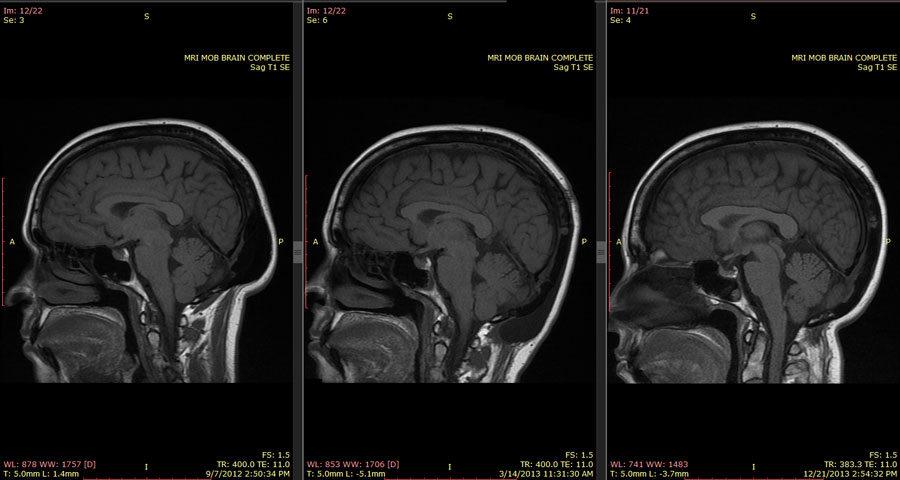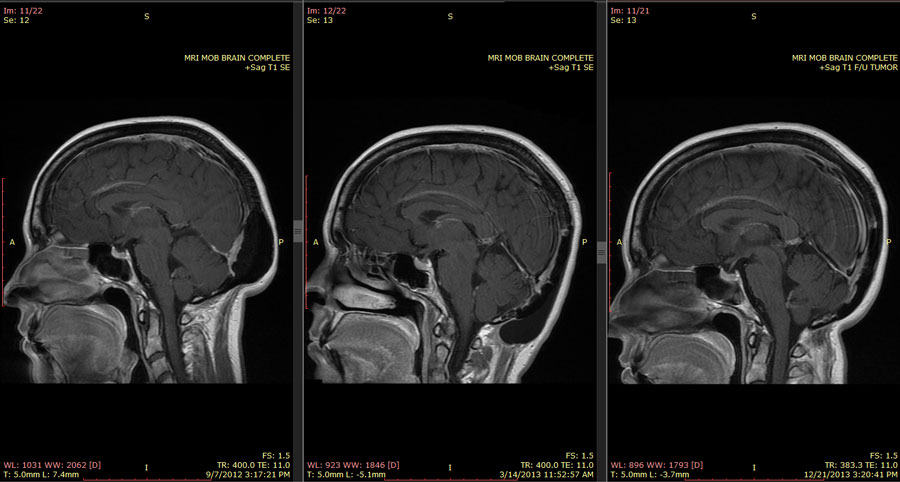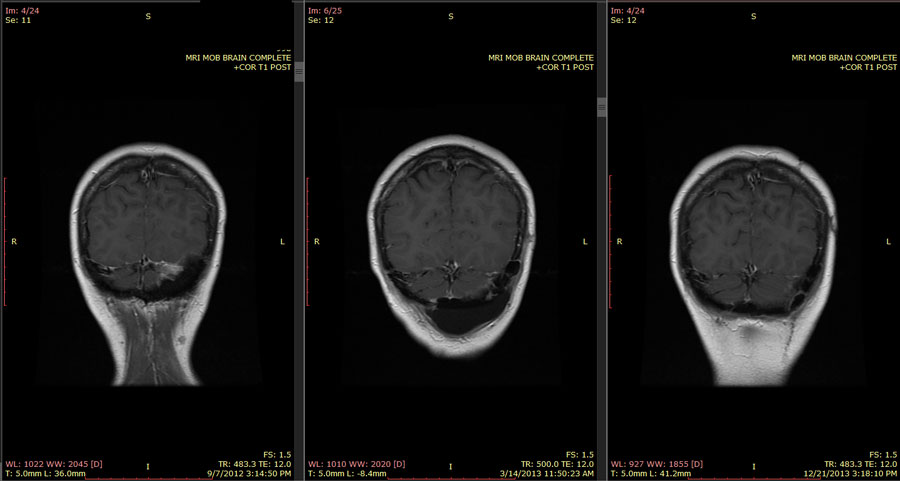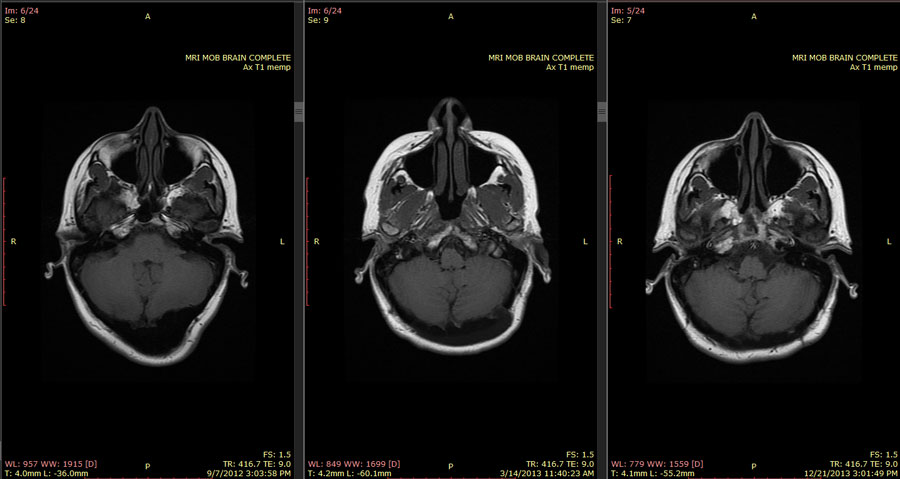So I have seen my neurosurgeon. He is happy. My brain is the right shape, and everything seems to be pretty much where it’s supposed to be. No lesions. The clump of cancer cells left behind out of necessity on my dura has even gotten smaller. He says there’s a possibility that it might even go away – I guess because they aren’t cells from the dura or something like that. I’m not going to complain if they do, no matter what the reason.
What I am complaining about, though, is that I’ve pretty much regressed to the mean – and it’s not a very nice mean.
This is pretty much as well as I’m going to be able to think from now on.
I started off with a substandard memory, and now it’s even worse. Short-term memory is much more impaired than it used to be. . .and that means that forming long-term memories out of those short term memories is impacted as well. There are things that no amount of reminding will come forward. Complete blanks where memories should be. I work hard to remember certain small things, but short of writing them down and carrying the written note with me at all time, they just don’t stay. I constantly have one thing or another to apologize for for forgetting.
One of the memory issues (did I mention this before?) is anomia. That is, I can’t remember words for things. Mostly it’s people’s names and names for objects. Noun loss. Other words will escape me periodically, but this is the most predominant. It works in only one direction, though. Visual input will not produce a word, but hearing or reading a word will create a mental image. So the words are there, I just can’t call them up on demand. When I’m anxious or stressed, it’s worse, and sometimes that makes me more anxious, which makes it worse, and so on, and I have moments of sounding like an idiot. Not cool, brain, not cool.
The other problem is that my medications aren’t working right. My doc wants to try medications that are aimed more at treating bipolar than ADHD, because the Cymbalta/Adderall combination that’s been my favorite over the years is now making me anxious. I stopped the Adderall a few weeks ago, and that helped a lot with the panic, but makes it incredibly difficult for me to concentrate. I have not been able to enjoy reading since stopping it, and I spend a lot of time wandering around the house wondering what I was just about to do. Like, unless I have something in my hand that I can look at that reminds me what I was just about to do, I honest to goodness forget what I was about to do the moment I face a different direction.
I am splitting my Cymbalta so I’m taking 30mg instead of 60, because of the dreams. OMG, the dreams are killin’ me. They are giant, epic affairs worthy of being made into movies. They’re not just in color, but also filled with sounds, smells, flavors, textures, and other sensations, most of them not particularly pleasant. Every morning I’ve awakened feeling exhausted from the stress of the dreams, with my jaw aching and head pounding from clenching and grinding my teeth. Last night I put in a mouth guard to help with this, and was rewarded with a particularly nasty nightmare.
All I can hope is that once the medication issue is resolved, my brain will be static enough that it’ll be resolved with some finality. Until then, I’m nervous about leaving the house (although I’m fine once I finally do) and darn near terrified of using the phone. (Part of that comes from the word loss anxiety. Ugh.)
People tell me that I seem fine. I suppose I appear fine on the outside. I’m much less fine on the inside. I’ll be contacting a neuropsychologist to see if I can learn some strategies for dealing with my new functional issues, and might also need a neurolinguistic speech therapist. We shall see. First, though, I need to work on lowering my expectations to a more realistic level.



